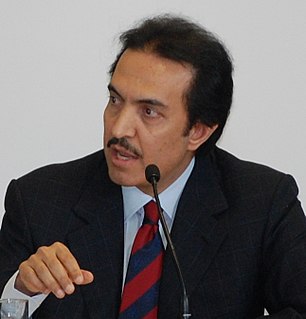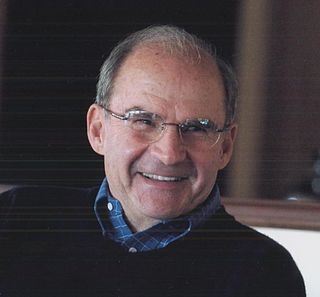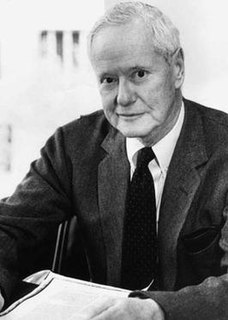A Quote by Nayef Al-Rodhan
Cognitive neuroscience, and social theorists from Weber to Bourdieu, have recognized that humans act, most of the time, habitually, not reflectively. Both at intrastate and inter-states levels, habits play critical roles in mitigating uncertainty, providing a sense of order, and entrench patterns of cooperation or enmity.
Related Quotes
Patterns of repetition govern each day, week, year, and lifetime. 'Personal habits' is one term we use to describe the most common of these repeated patterns. But I say these habits are sacred because they give deliberate structure to our lives. Structure gives us a sense of security. And that sense of security is the ground of meaning.
I tend to be a loner ? I think a lot of social theorists are like that. On one level, the majority of the most important people to me are people who I have imaginary conversations with in the deep of the night: I'm often in conversation with Max Weber or Karl Marx or someone like that. Those are the people I'm closest to and that have had the most influence on me!
There are only patterns, patterns on top of patterns, patterns that affect other patterns. Patterns hidden by patterns. Patterns within patterns. If you watch close, history does nothing but repeat itself. What we call chaos is just patterns we haven't recognized. What we call random is just patterns we can't decipher. what we can't understand we call nonsense. What we can't read we call gibberish. There is no free will. There are no variables.
My view of ethics and of its priority is connected to my view that we are fundamentally relational beings - both the product of human interactions, as well as committed as part of the expression of our own humanity to various social involvements. I see ethics as having two places in the maintenance of these relational activities - first as providing the basic coinage of our interactions qua humans and second as mediating the various roles we assume as humans.
Myths, whether in written or visual form, serve a vital role of asking unanswerable questions and providing unquestionable answers. Most of us, most of the time, have a low tolerance for ambiguity and uncertainty. We want to reduce the cognitive dissonance of not knowing by filling the gaps with answers. Traditionally, religious myths have served that role, but today — the age of science — science fiction is our mythology.
Regarding social order, [Francis] Fukuyama writes, "The systematic study of how order, and thus social capital, can emerge in spontaneous and decentralized fashion is one of the most important intellectual developments of the late twentieth century." He correctly attributes the modern origins of this argument to F. A. Hayek, whose pioneering contributions to cognitive science, the study of cultural evolution, and the dynamics of social change put him in the forefront of the most creative scholars of the 20th century.
Max Weber was right in subscribing to the view that one need not be Caesar in order to understand Caesar. But there is a temptation for us theoretical sociologists to act sometimes as though it is not necessary even to study Caesar in order to understand him. Yet we know that the interplay of theory and research makes both for understanding of the specific case and expansion of the general rule.
When humans act like animals, they become the most dangerous of animals to themselves and other humans, and this is because of another critical difference between humans and animals: Whereas animals are usually restrained by the limits of physical appetites, humans have mental appetites that can be far more gross and capacious than physical ones. Only humans squander and hoard, murder and pillage because of notions.
A lot is being done to bring additional protective measures, particularly the critical infrastructure locations around the United States, ... There is a very active ... program of
coordination on this particular period of time with both public and private entities and at the federal, state and local levels.
We had discussions at the Department of Defense on the issues of utilizing and requesting the full skill of United States capabilities, both on the soft side and on the side of providing logistics and technical expertise... And, we as a country are extremely pleased with the announcement that we have heard, and we look forward to that cooperation as expeditiously as we can.





































